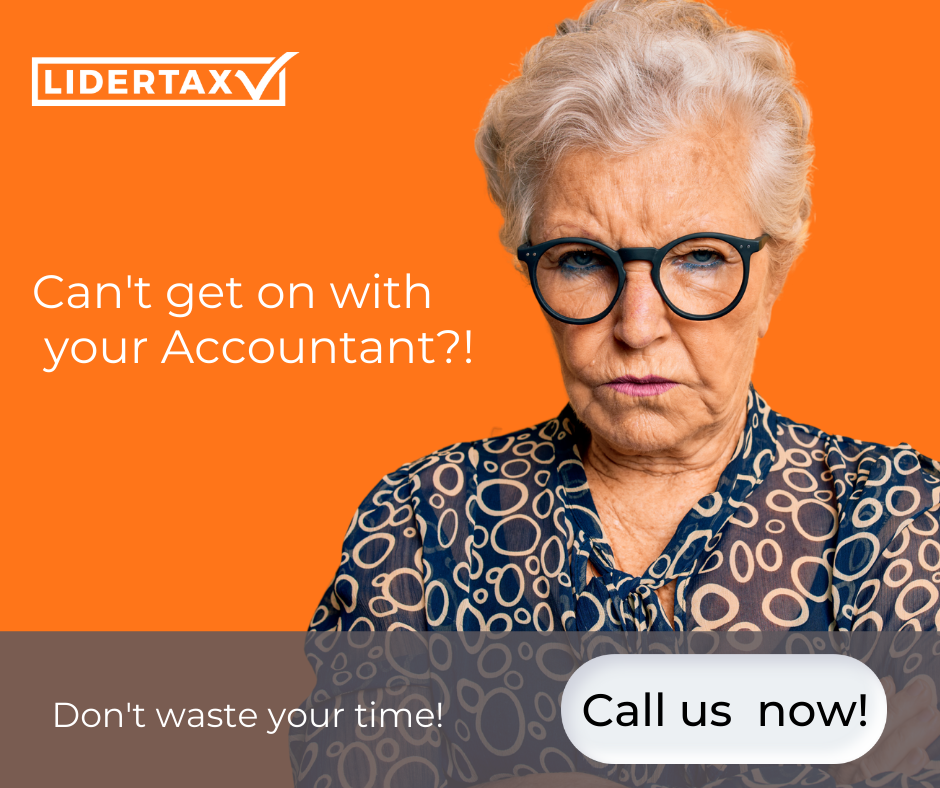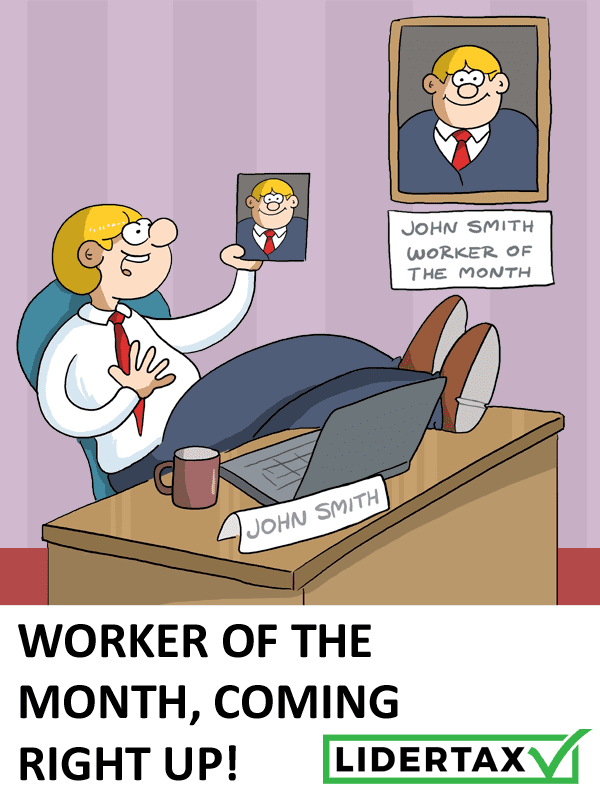
In the United Kingdom, self-employment is defined as working for oneself either as a freelance worker or running one’s own business. If you are self-employed, you are not an employee of another company and do not have an employer-employee relationship with anyone (unless you hire someone). This means that you will not receive any benefits from an employer, such as holiday pay, sick pay, or a pension. However, it also means that you are free to set your own work schedule and hours you work to as little or as much as you like. If you’re not sure of your employment status or if you should be classified as a self-employed person, visit this government website to check.
How to Register as Self-Employed (Sole Trader):
If you are thinking of becoming self-employed, you need to take some important steps first. Here is a detailed guide on how to register as a sole trader in the United Kingdom.
1. Register with HMRC
You first need to register with the HMRC as a self-employed (sole trader). You can do this by phone, post, or online.
To register online for Self-Assessment and Class 2 National insurance, you will need to have signed into your Business Tax Account, and for that, you’ll need a Government Gateway user ID and pass. You can create a business tax account if you don’t have one.
Once you register, you will be given a 10-digit Unique Taxpayer Reference (UTR) number. This is your personal reference number; you will need to use it on all correspondence with HMRC regarding your Self-Assessment tax return.
Although HMRC suggests registering as soon as you become self-employed, you are not obligated to become a sole trader until October 5th, the second tax year of your business.
A tax year spans from April 6th to April 5th of the following year.
This means if you start a new business being a sole trader in February 2022, you’ll have until October 2022 to register.
But if you started the business after April 5th of 2022, let’s say in May, then the new tax year will start, and you’ll have until October 5th 2023, to register with HMRC as a Sole Trader.
Depending on your circumstances, you’ll come across one of these situations when registering:
- First Time Self-Employment With No Previous Tax Return: Register as a new business with HMRC online if you’ve not submitted a self-assessment tax return previously. Doing this will get you registered for Class national Insurance and Self-Assessment Tax.
- First Time Self-Employment With Previous Tax Return Completed: If you’ve previously done a Self-Assessment Tax return individually but are becoming a Sole Trader (self-employed) for the first time, you need to complete the Form CWF1 to register as self-employed and also for Class 2 National Insurance.
- Previously Registered as a Sole Trader: If you registered as self-employed previously and want to re-register, use the form CWF1.
2. Choose a Business Name
There are some crucial considerations when choosing a business name for yourself as a sole trader.
First, you want to make sure another business does not already take the name. You can quickly search online or at your local library to find out.
Second, consider what kind of business name would represent you and your business well. Something that is too cutesy or clever may not be taken seriously by potential customers. Conversely, something that is too boring or generic may be easily forgettable. Try to strike a balance between the two extremes.
Another thing to consider is whether you want your name to be reflective of the products or services you offer. For instance, if you are a baker, you might want to include the word ‘bakery’ in your business name. This can be helpful in terms of marketing and branding down the line. If you are unsure what direction you want to take your business in, however, it might be best to avoid this for now and leave yourself some room to grow.
Also, make sure to keep your local area in mind when deciding on a name because if nearby people search for the products/services you offer online, your name may come up. For instance, if you name your bakery business in Bristol is called ‘ABC Bakery Bristol”, then it’s got a higher chance of coming up in search results when someone searches for a bakery in Bristol.
Remember, After Registering as Self-Employed, You’re Responsible for Your Own Tax and National Insurance
As a registered self-employed individual in the United Kingdom, you are responsible for your own taxes and National Insurance contributions. This means that you will need to file a Self-Assessment tax return every year detailing your income and expenses for the year.
For National Insurance Contributions, you’ll pay Class 2, which is £3.15/week over £6,725 annual profits for the 2022-23 tax year.
If your annual profits are between £11,908 and £50,270, then you pay Class 4 NI as well, which is 9.73% for the current (2022-23) year. If profits are more than this, you’ll pay 2.73%.
You can visit here to find the most updated thresholds and rates depending on when you’re reading this.
Most self-employed persons (sole traders) hire accountants like Lidertax to do their books and handle tax affairs for timely returns and avoidance of penalties. Since you’re just one person handling every aspect of your business, hiring an accountant for such complex matters is the best way, as they can also advise you on ways to operate more tax-efficiently.
What to Do After Becoming a Registered Self-Employed Person (Sole Trader)?
1. Track Your Income and Expenses:
As a self-employed individual, it is important that you keep track of your finances, including income and expenses. This way, it’ll be easier for you to complete your Self-Assessment tax return at the end of the tax year. You can use a spreadsheet or accounting software to keep track of your finances or hire an accountant to do this for you.
2. Make Sure You Pay Your National Insurance Contributions:
As a sole trader, you’ll have to make sure you pay your National Insurance contributions. These contributions go towards your state pension and other benefits such as maternity allowance and jobseeker’s allowance. You can make your National Insurance payments online or by phone.
3. File Your Self-Assessment Tax Return:
All self-employed individuals in the UK must file a Self-Assessment tax return every year. This is a form that declares your income and expenses for the tax year. The tax year runs from April 6th to April 5th of the following year. For example, the tax year 2022/23 runs from April 6th 2022, to April 5th 2023 The Self-Assessment tax return filing deadline is January 31st of the following year. You will be liable for late payment penalties if you miss the deadline.
4. Get Proper Licenses:
Some types of self-employed businesses would require you to get licenses to start working, like being a taxi driver, which requires a local authority’s license. You will also have to go through an inspection to ensure the business is legal and in good shape.
5. Buy Insurance:
The legal requirement might be to purchase employers’ liability if you employ people. For additional safety, you can get professional indemnity for any mistakes while working that result in loss of client and public liability for any accidents that cause loss to the general public.
When to Register for VAT as a Sole Trader?
If you are thinking of registering for VAT as a sole trader in the United Kingdom, there are some important factors you need to know. First of all, you should only register for VAT if your business turnover is above the VAT threshold, which is currently £85,000. If your turnover is below this amount, you are not required to register for VAT. However, you may choose to do so voluntarily.
Once you have decided to register for VAT, you will need to obtain a VAT registration number from HM Revenue & Customs (HMRC). You can complete a VAT1 form and send it to HMRC. Once you receive your VAT registration number, you need to start charging VAT on all your sales.
After registering for VAT, you will need to file quarterly VAT returns with HMRC detailing how much you have charged and paid over the quarter. You will also need to pay any VAT due to HMRC on a quarterly basis.
HMRC may impose penalties on you if you fail to comply with your obligations as a registered VAT user. These can include fines and surcharges. In severe cases, HMRC may even choose to deregister your business.
Register As Self-Employed – Parting Words:
If you are thinking of working from home as a self-employed person, it is very crucial to be aware of the various applicable taxes and regulations. You should also contact a tax advisor to discuss your specific situation and find out what steps you need to take in order for your business to operate legally and safely.



